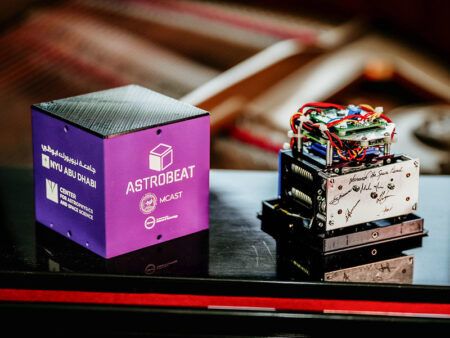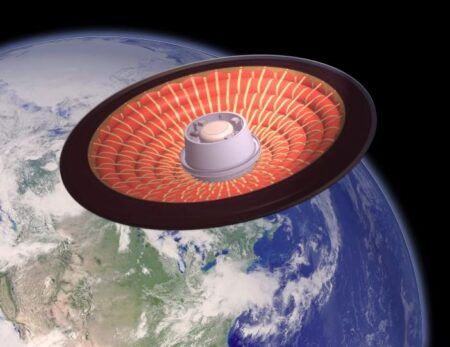Orbital ATK has completed the first US test of a 22 Newton (N) thruster using a high-performance green propulsion system powered by a safe, low-toxicity rocket fuel, designated LMP-103S, provided by the Swedish firm ECAPS, on Tuesday September 15, 2015. Green rocket fuels pose fewer health risks and are more cost-effective in terms of storage, material handling, transportation and launch-site processing.
The test was part of a series at NASA’s Marshall Space Flight Center in Huntsville, Alabama, and included both a 5N thruster and, for the first time in the United States, a 22N thruster, both of which performed well across all test parameters. Thrusters of this size are commonly used for maneuvering satellites while in Earth orbit.
“Orbital ATK and our partner ECAPS are dedicated to helping NASA achieve its goal of eliminating the challenges and risks associated with manufacturing, transporting and handling the current generation of high-performance propellants,” said Cary Ralston, vice-president and general manager of Orbital ATK’s Missile Products division of the Defense Systems Group. “These successful tests move us another step toward providing safer, higher performance thrusters without the need for expensive and time-consuming protective processes and equipment.”
LMP-103S is a low-toxicity, environmentally-benign propellant, providing benefits over conventional hydrazine, which include improved performance, enhanced volumetric efficiency, reduction of propellant handling hazards and safer launch operations. Orbital ATK, ECAPS, NASA Marshall Space Flight Center and NASA Glenn Research Center are testing the green propulsion system to demonstrate the performance and safety features of the system, and collecting data for evaluation of green propulsion options for spacecraft systems.
September 17, 2015




